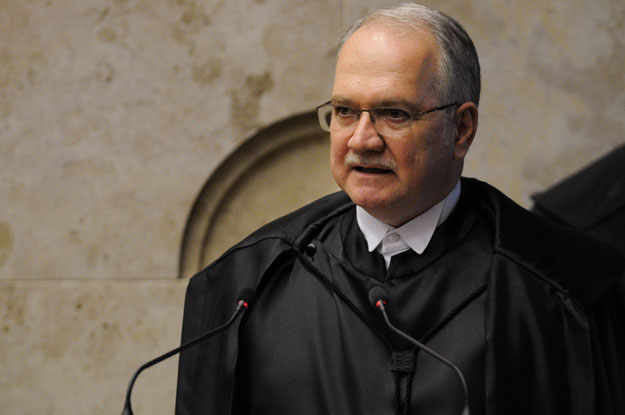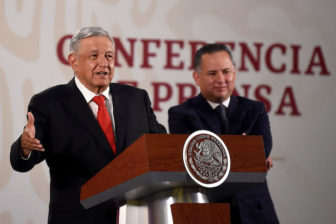Brazil is one of the top 10 economies globally, but it fails to meet too many of its population’s basic needs. It is one of the OECD countries with the highest public spending on education – yet Brazilian students perform worse on international tests than those in other OECD countries. Half of all Brazilians still lack access to basic sanitation and 35 million lack access to clean water. Labor productivity has been at roughly the same level since the 1980s, leaving the country at the mercy of fluctuations in international commodity prices. These failures can largely be attributed to bad governance.
As the mother of all corruption scandals unfolds on television, Brazilians are taking a long, sobering look at the inner workings of their political system, where these problems have their roots. The revelations shed light on the amount of money stolen but also exposed the mode of operation of Brazil’s political class.
On Apr. 11, following plea bargain testimony from executives of Odebrecht, Supreme Court Justice Luiz Edson Fachin authorized federal prosecutors to investigate dozens of top-ranking politicians for illegal activities ranging from dodgy campaign bookkeeping to embezzlement of public funds. The list of people who will be formally investigated is astounding: nearly half of all sitting governors, a third of senators, all five living former presidents, and the majority of likely candidates for the upcoming presidential race in 2018. President Michel Temer will avoid investigation only because the post grants him legal protection.
Out of thousands of documents and hours of depositions emerges a picture of a political class that for years – for generations – did what was necessary to satisfy powerful private lobbies. Odebrecht illegally paid kickbacks to members of Congress to secure contracts and to write key pieces of legislation (such as the settlement of their own tax debts). It stopped state-owned oil giant Petrobras from buying private petrochemical firms in order to maintain their market share. The company went as far as pre-emptively dishing out cash to politicians who might in the future create obstacles to the distribution of public funds for infrastructure projects under contract.
Odebrecht’s influence extended to foreign policy too. Top executives managed to shape talking points in official conversations between the Brazilian president and their foreign counterparts. From Cuba to Angola to Argentina, Odebrecht shaped bilateral ties with some of Brazil’s key diplomatic partners. It also played a role in the government’s decision to sign a deal to build a nuclear-propelled submarine with assistance from France. Much of the work in this defense contract will be carried out by Odebrecht.
How did Brazil get here? It started with Brazil’s transition to democracy. The rules of the game changed with the new constitution in 1988, which, by adopting an electoral system that greatly favors small parties, ensured that Brazil’s Congress would be one of the most fragmented legislatures in the world, with 26 parties represented in its lower house. With representation so pulverized, politicians seldom abide by clear-cut ideological commitments and voters have a hard time distinguishing between platforms and holding their elected officials accountable. Politicians in Brazil therefore survive in office by catering to special interest groups and private lobbies more than they do by providing good governance to the majority of the electorate.
Current rules also stipulate that Brazil’s president has the power to appoint over 108,000 people to positions that have the power to authorize billions of dollars every year on infrastructure work and other types of public spending. Presidents therefore secure congressional support by appointing associates of members of Congress to official positions that attract private companies and other interest groups. The latter then finance political campaigns in exchange for government contracts and legislative influence. People in positions of power win, and the Brazilian people lose.
Brazil’s political system is dysfunctional and needs wide-ranging reform. Change will require new rules that curb the current incentives for members of Congress to serve interest groups at the expense of the electorate. Congress needs to be held accountable to provide good governance for the population at large rather than benefits for a select few.
Transformation will also require top-down changes in campaign finance rules in order to remove big money from politics. Current proposals by legislators to increase public funding available to parties, for example, should be abandoned.
Reforms must also address the role of the executive. Presidents must give up their existing power to distribute public sector jobs to loyal supporters. Political meddling in state-owned companies needs to be curtailed, and so does the president’s discretionary power over large shares of government spending.
Finally, Brazilians should reform their justice system to dissuade corrupt deal-making and to make it easier for those convicted of crimes to do jail time by restructuring the cumbersome appeals system that has protected corrupt politicians for decades. Under the current system, it is likely that the majority of the politicians accused of crimes in the Odebrecht scandal will never spend a day in jail.
Brazil’s current political system must give way to a new order if there is to be any progress.
—
Mello is a Ph.D. candidate at the London School of Economics. Spektor is an associate professor of International Relations at Fundação Getulio Vargas, Brazil.








